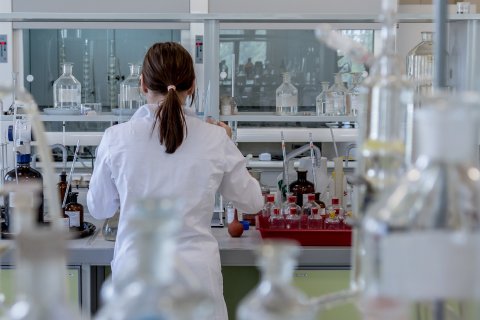Global leaders approve target to reduce human deaths from AMR by 10% by 2030

Last month global leaders met at the 79th United Nations General Assembly (UNGA) High-Level Meeting on Antimicrobial Resistance (AMR), where they committed to a set of targets and actions, including reducing the estimated 4.95 million human deaths associated with bacterial antimicrobial resistance (AMR) annually by 10% by 2030.
This meeting was an important opportunity for world leaders to collectively address the looming threat AMR poses to global health, food security, and achieving the 2030 Sustainable Development Goals.
Welcoming the declaration, Dr Tedros Adhanom Ghebreyesus, WHO Director-General, said: “In the century since Alexander Fleming stumbled across penicillin in a laboratory in London, antibiotics have become a mainstay of medicine, transforming once-deadly infections into treatable and curable conditions.
“Antimicrobial resistance threatens to unwind that progress, making it without question one of the most pressing health challenges of our time. Today’s declaration includes vital commitments that, if translated into action, will help to track AMR, slow it down, expand access to antimicrobial medicines like antibiotics and spur the development of new ones.“
AMR occurs when bacteria, viruses, fungi and parasites no longer respond to medicines, leading to infections becoming difficult or impossible to treat, increasing the risk of disease spread, severe illness and death.
The declaration, which took place on 26 September, also calls for sustainable national financing and US$100 million in catalytic funding, to help achieve a target of at least 60% of countries having funded national action plans on AMR by 2030.
On human health, the declaration sets a more ambitious target that at least 70% of antibiotics used for human health globally should belong to the WHO Access group antibiotics with relatively minimal side effects and lower potential to cause AMR.
It also includes targets around infection prevention and control (IPC), such as 100% of countries having basic water, sanitation, hygiene and waste management services in all health care facilities and 90% of countries meeting all WHO’s minimum requirements for IPC programmes by 2030.
In the run up to the UN General Assembly High-Level Meeting on AMR, we shared a recorded conversation with Professor Dame Sally Davies GCB DBE FRS FMedSci, the UK Special Envoy on Antimicrobial Resistance (AMR), on preparation for the upcoming UN General Assembly High-Level Meeting on antimicrobial resistance, as well as her career to date. Watch the recorded conversation here.
Following the meeting, Dame Sally welcomed the progress and called for commitment saying: “Without urgent action from all across the world, there will be three deaths every minute from AMR by 2050. That’s why the political declaration endorsed at this year’s High-Level Meeting on AMR is so critical to cement the actions needed and ensure global equitable access to antibiotics, finance for interventions to tackle AMR, and much-needed evidence to inform future actions. We must work in partnership with the countries most afflicted by AMR, and with the private sector, civil society and academia to translate these commitments into actions where it matters most.”
Elsewhere, Trinity College launched a graphic short story depicting ‘Super Sally’, as an AMR fighting superhero. Read more here.